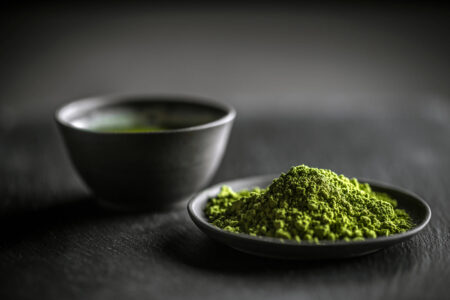But did you know there are many ways to treat dyspepsia—the medical term for an upset stomach—right at home? Read on for some natural remedy ideas that bring relief, as well as when to seek professional guidance.
Do these symptoms sound familiar: heartburn, bloating and gas, sour breath/coughing, or nausea? If so, here’s a list of natural indigestion treatments that can help you to avoid the doctor’s office!
Hydration
Your body needs proper hydration in order to digest food, plain and simple. Making sure that you are getting enough water is a preventative—rather than a treatment—measure to avoid indigestion. It’s a healthy habit that’s easy to overlook but an even easier one to correct.
Staying upright
Make gravity your friend! If you are prone to having an upset stomach, the worst thing you can do is lie down after eating.
Remaining in a seated position for at least 30 minutes after eating can prevent heartburn, or if symptoms are already present, reclining while propped up on pillows for a few hours will help to quell symptoms faster than laying flat.
Heat
Tense muscles will not do your stomach any favors when it comes to digestion. Using a heating pad or even soaking (upright) in a warm bath can help to relax abdominal muscles and alleviate stomach pain.
Mother Nature’s Medicine
Certain herbs and roots can do wonders to ease stomach discomfort. Here are several that might help you the next time your stomach feels off:
ginger
A well known anti-nausea ingredient, ginger contains compounds that help to move food through the digestive tract, resulting in less noticeable symptoms overall.
mint
The cooling flavor of mint instantly soothes the sensation of burning in your digestive tract. Whether sucking on a candy, or making a spearmint tea, you may find that mint significantly reduces unpleasant symptoms quickly.
basil
A natural acid-reducer and anti-inflammatory agent, basil is widely regarded to support healthy digestion.
licorice
This root is known to reduce inflammation and even the severity of ulcers!
cloves
This sweet smelling spice helps to reduce cramps from excess gas.
cinnamon
Packed with antioxidants, this spice reduces irritation throughout the entire gastric system and can reduce stomach symptoms like nausea, cramping and belching, too.
cumin
People have chewed cumin seeds for centuries to help with symptoms of heartburn. It’s believed to reduce inflammation through its antimicrobial properties.
BRAT diet
This bland diet is full of “binders” known to slow diarrhea, and electrolytes to replace nutrients lost. It consists of:
Bananas
Besides adding bulk, bananas replace B6, potassium and folate which help to ease stomach pain.
Rice
Well known for its absorption of toxins as well as its ability to deliver a one-two electrolyte punch of magnesium and potassium, which are the missing electrolytes that can cause cramps.
Applesauce
Apples contain pectin, a natural binder that helps to slow diarrhea.
Toast
Adds bulk and fiber to the diet in times of gastrointestinal distress.
Avoidance of…
cigarettes
Although people claim smoking aids digestion, in all actuality the harsh chemicals and smoke irritate the lining in the throat and esophagus. Smoking also slows down healing, making it one of the worst things you can do when hoping to recover from digestive ailments.
alcohol
A toxin, plain and simple. If you are experiencing stomach upset, drinking alcohol will only worsen whatever symptoms are already present, in addition to adding a few more—like ulcers and liver/pancreatic damage.
hard-to-digest foods
This may seem like a no-brainer, but it bears repeating…if a food is hard to digest, chances are it will make any symptoms you’re experiencing that much worse. Steer clear of fried, rich and heavily preserved foods when indigestion acts up and you might be surprised how much faster you’ll recover.
citrus juice/baking soda/water
This concoction produces carbonic acid, which is essentially a homemade TUMS. Mixing 1:1 of the lime/lemon juice with a teaspoon of baking soda in 8 oz of water can help neutralize acid and calm heartburn symptoms.
figs
Prunes aren’t the only natural constipation-alleviator, figs can also help move things along; they also contain natural indigestion-fighting compounds.
aloe
Clinically proven to reduce symptoms of heartburn, nausea and regurgitation, aloe juice promotes healthy gut microbes and overall digestive abilities.
yarrow
Eating the leaves of this plant have been shown to act on the vagus nerve—the main nerve controlling the digestive system—and by extension, acid regulation in the body.
coconut water
Lower in sugar than sport drinks, coconut water also contains electrolytes lost during episodes of diarrhea and can ease cramping.
Of course, home remedies are best used when symptoms are mild or infrequent. There are other signs and symptoms that must be taken seriously, especially if they occur often and with increasing severity.
If you find that the above measures are not helping your symptoms at all, or if you experience any of the following, make sure to seek medical attention right away. These include:
- uncontrolled vomiting
- bloody stools
- unexplained weight loss
- chronic constipation or inability to pass stool/gas
- anemia (or dizziness/lightheadedness with a history of anemia)
- urination discomfort
- fever
- arm pain
- severe abdominal pain, or lumps
- trouble swallowing




